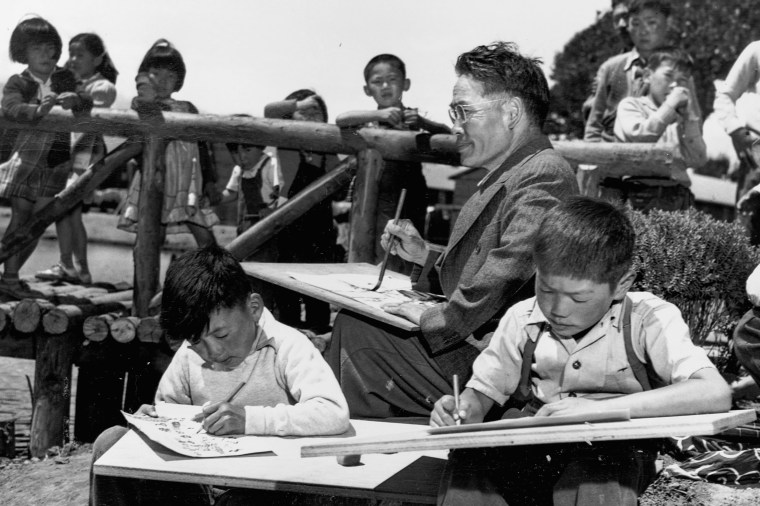Rhode Island is joining a growing list of states mandating that Asian American and Pacific Islander history be taught in public schools.
Gov. Dan McKee, a Democrat, signed the legislation over the weekend, which will go into effect for the 2023-2024 school year. It requires elementary and secondary schools to teach at least a unit of instruction on the history and culture of Native Hawaiians, Asian Americans and Pacific Islanders. Under this new curriculum, students will learn more about the populations’ fight for civil rights and their contributions to the region and the U.S.
McKee said he hopes the legislation can help call attention to the achievements of Asian Americans and Pacific Islanders.
“Rhode Island’s strength is in its diversity,” McKee said in a statement Saturday. “This important legislation will do so much to highlight the rich history and heritage of the Asian American community and the positive impact they've had on our state and country.”
Connecticut and New Jersey enacted similar laws earlier this year to highlight the contributions of Asian Americans. Last year, Illinois became the first state to enact this type of legislation.
The measure in Rhode Island follows a 32% increase in the Asian American population in the state over the last decade, according to the 2020 census.
State Rep. Barbara Ann Fenton-Fung, a Republican, said there is a lack of representation for Asian American and Pacific Islander youth in the classroom. However, she said this legislation can change this.
“When talking to Asian American students about this bill, they told me they had never been assigned material to read by an Asian American author and that they had never learned about their history or culture in school,” Fenton-Fung, one of the bill’s sponsors, said in a statement.
Advocates previously told NBC News that teaching Asian American history could help lower incidents of bullying and harassment targeting Asian American students.
The push for inclusive history comes as anti-Asian hate crimes increased by 339% between 2020 and 2021, according to data published by the Center for the Study of Hate and Extremism.
“Combined with the rising bias against Asian Americans, there is a clear need to break this cycle of cultural misunderstandings and this legislation is a good first step in that direction,” Fenton-Fung said in the statement.

